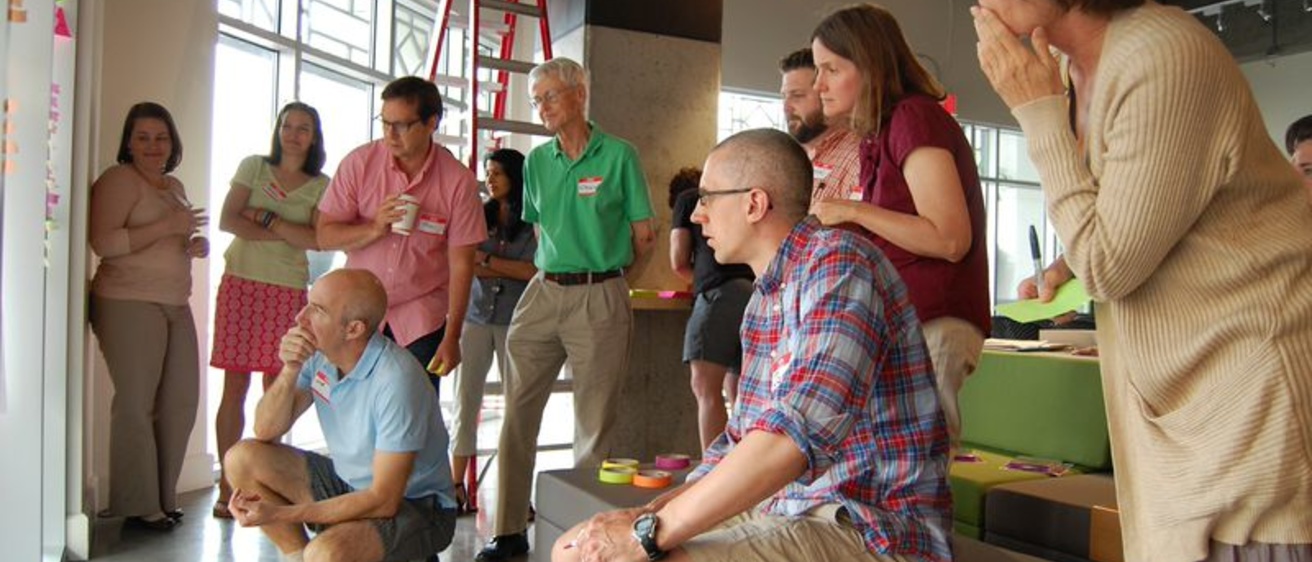The Obermann Center's unique Working Groups program provides space, structure, and discretionary funding for participants from across the UI campus and beyond to explore complex issues at a moment when cross-disciplinary collaboration is crucial to address shifting domains of knowledge and a rapidly changing world. We've extended the application deadline for 2020-21 Working Groups to April 28, and we encourage any faculty member interested in creating new intellectual partnerships around interdisciplinary exploration to apply.
To provide a sense of how Obermann Working Groups operate, we interviewed the directors of two current groups: Hyaeweol Choi, co-director (with Jenna Supp-Montgomerie) of the Secularity and Sanctity in the Modern Era Working Group, and Melissa Tully, director of the Global Media Studies Working Group.
Read more about these and other current and past groups.

What prompted you to apply for the Working Groups program (as opposed to say, meeting regularly with each other to discuss your shared research interest)?
Choi: The chance to work with the Obermann Center, which is such a vital intellectual hub, was the main attraction. In addition, the formal mechanism of the working group provides a good structure for planning and implementing our goals.
Tully: I wanted to gauge interest in the topic (Global Media Studies) and thought that reading and discussing was the best way to do that. I like that the working group is for intellectual conversation not tied to a specific research project or outcome, although we have goals of producing collaborative research and have been sharing our research projects with the group for feedback.
What departments and roles (e.g., faculty, graduate student, community member) are represented in your group?
Choi: We are composed of PhD students (4), lecturers (2), an assistant professor (1), an associate professor (1), and a full professor (1), who are affiliated with three departments (Religious Studies, Communication Studies, and English).
Tully: Our group has faculty and graduate students from Journalism and Mass Communication and Communication Studies. We also have a post-doc in the group who is housed in the Obermann Center.
What was the focus of your last meeting? Do you have any thoughts/plans for a focus for the remainder of this semester, including ones that pertain to COVID-19?
Choi: Our last meeting was on March 6, when we viewed a film, Secret Sunshine, related to our central topic (Secularity and Sanctity). We will discuss the film in our April meeting (April 10 via Zoom), along with a presentation of a work-in-progress by one of our members.
Tully: Our last meeting was a research meeting to discuss the collaborative group project that we want to work on. We haven’t figured out a plan for the rest of the semester, but I’m hoping to meet again to discuss the project and future plans. We were supposed to have a speaker coming in for our March meeting, but that had to be canceled.
How have you or are you planning to use your budget (e.g., inviting in speakers via Zoom, purchasing books)?
Choi: We have purchased essential books on our topic.
Tully: We have to meet to discuss our plans. We may purchase additional books (which is how we’ve spent the money so far) or put it toward the research project, which may have some associated expenses.
What are the rewards of being part of an Obermann Working Group that you'd share with anyone who is considering organizing one?
Choi: The program presented an opportunity to explore a theme across disciplines and to expand the scholarly network.
Tully: It’s a very rewarding experience to meet together for intellectual conversation and debate. I would highly recommend it to anyone who wants to explore a topic in depth and to gauge interest in the topic on campus.
